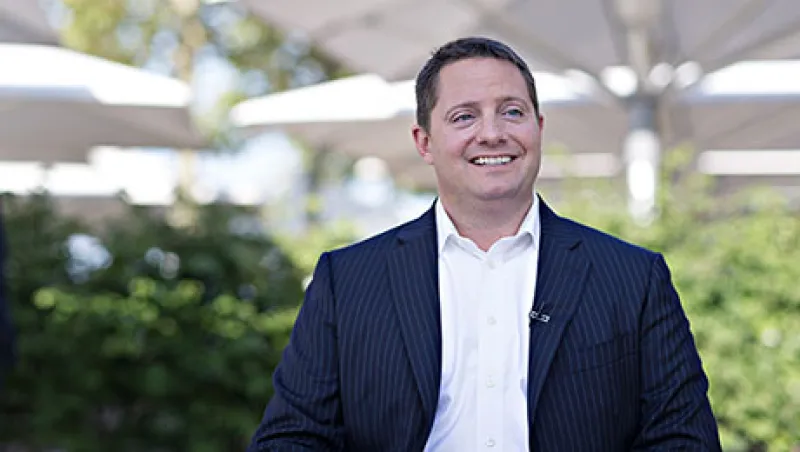
Carson Block, founder and director of Muddy Waters LLC, reacts during a Bloomberg Television interview in Zurich, Switzerland, on Tuesday, Sept. 13, 2016. Block said European investors aren’t doing their homework in regards to “digging into financial statements”. Photographer: Michele Limina/Bloomberg
Michele Limina/Bloomberg


